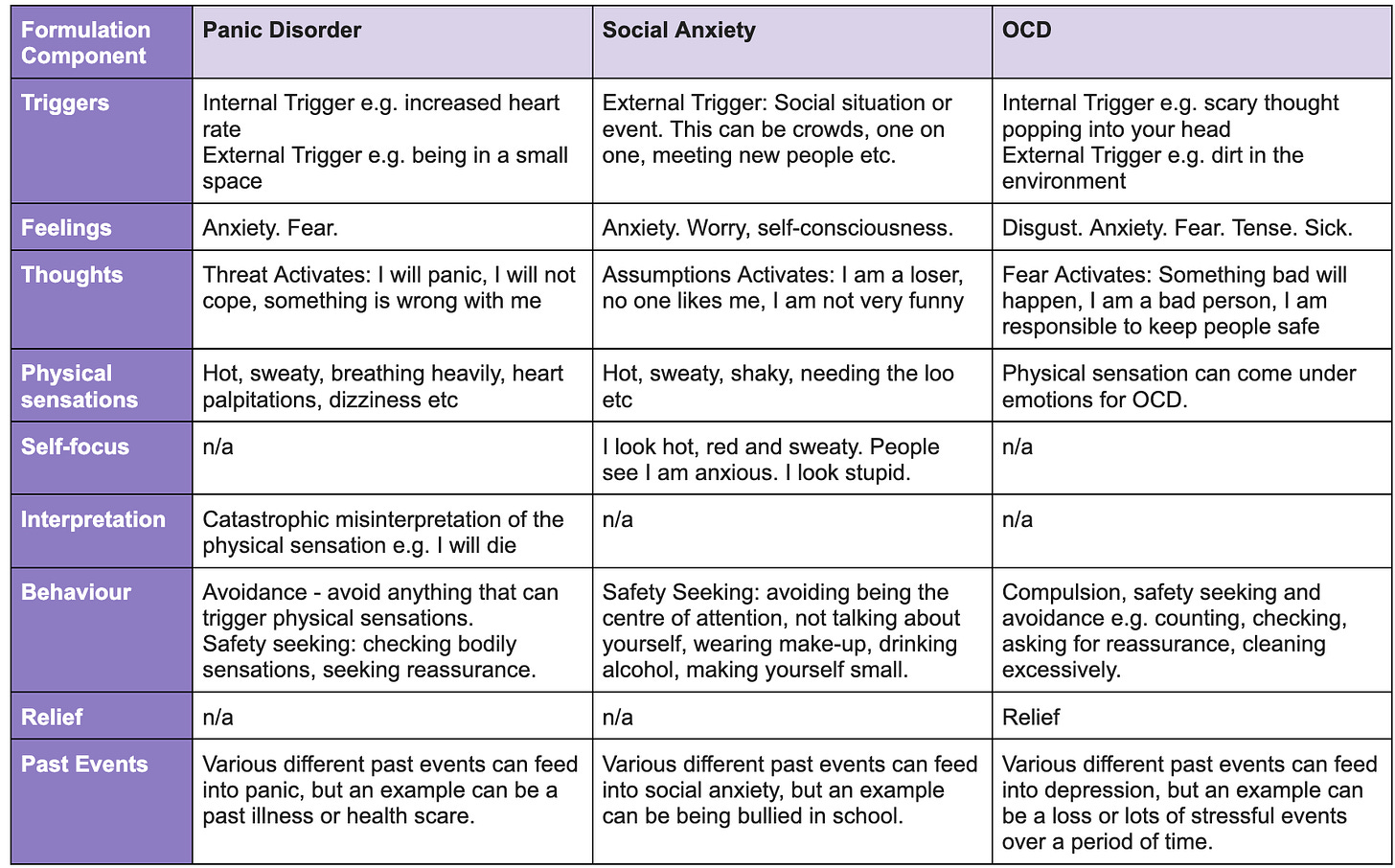Formulating a Problem.
The guide to pulling together your thoughts, feelings, behaviours and physical sensations.
Insights into My Week
I created social media accounts for my private practice to allow potential clients to learn more about me through the content I share. Also, social media allows me to offer guidance and information to people interested in psychology from a therapist's point of view.
A few days ago, I decided to make short videos explaining what formulations are, and how they are developed to help you, and your therapist, build an understanding about your current difficulty. Formulation is the term given to a visual and written explanation of why your problem developed and what is keeping it going.
My biggest challenge is making these short videos as they can only last 90 seconds! Being concise and to the point is a crucial skill! However, I wanted to link my blog to my videos so that I can offer people a more detailed description if they wanted to know more information.
Insights to Take Away
Formulations are, as mentioned, a term given to the creation of a shared understanding of your current problem. These diagrams offer a space to understand how various different symptoms, triggers and historical events may be feeding into your difficulties with your mental health. It can help to understand the possible reasons why a problem developed, in addition to also understanding what is keeping the problem going or maintaining it over time. Knowing these answers can help us to find solutions to better manage your mental health.
Over the years, I have heard patients time and time again say that they enjoyed the formulation process or found it extremely useful. This is often because it helps them to understand themselves but also to offer them clarity to their overwhelming experiences.
There are the basic, simple formulations which are often used with children and young people or at the start of therapy to offer a first insight into how symptoms may be feeding into each other. These look at how the environment or situations as well as thoughts, feelings, behaviours and physical sensations feed into each other to create a maintenance cycle.
Cognitive Behaviour Therapy (CBT) is a structured form of therapy, and can offer more comprehensive formulations depending on the presenting difficulty. Each formulation can look different for varying problems and therefore can contain unique components.
What are the similarities and differences in the different formulations?
The first similarity is the inclusion of early experiences or past events. For example in social anxiety, past events which stand out in your memory as embarrassing or when you felt social rejection can come into account. Similarly, for Obsessive Compulsive Disorder we may look at events in the past which made you feel unsafe or scared.
Other similarities in almost all formulations will include a variations of:
Thoughts such as beliefs, assumptions, automatic thinking, meanings or images.
Feelings and emotions
Physical sensations such as bodily sensations or physiological responses.
Behaviours including unhelpful coping mechanisms, avoidance and/or safety seeking behaviours.
To show you how some of the content may look in practice, I will do a side by side comparison of social anxiety, panic and OCD. Providing some insight into how they can have similar themes, but also varying content or additional components not seen in other disorders.
All of these components and different terms can be confusing. It took me a long time to learn the lingo too! At the start of therapy it is often quoted that:
“You come to therapy as the expert in you, and the therapist starts as the expert in what can help. However, by the end of therapy, you will be the expert in what can help you.”
My main take away for you this week is that understanding our mental health can be confusing and include a lot of overwhelming information. Be patient with the process of learning about what may have caused your problem to develop or what keeps it going. It takes therapists years to learn the various formulations and even then there are still things to learn. Asking for help to understand these things is always an option too.
Love,
Ffion
If you were curious here are the links to my social media:
Instagram - foxglove_therapy_amsterdam
TikTok - foxglovetherapyamsterdam
Facebook - Foxglove Therapy - Amsterdam Psychologist
LinkedIn - ffionhjones





